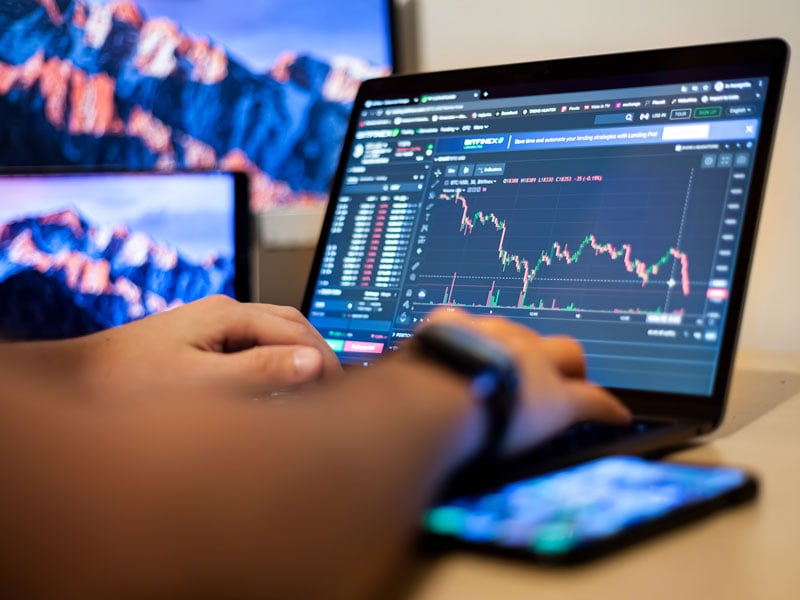Broker-dealer platforms play a pivotal role in the financial industry, facilitating the buying and selling of securities. Behind the scenes, a multitude of technologies works in harmony to enable seamless and efficient transactions. In this article, we will delve into the tech behind a broker dealer platform, exploring the innovative solutions that power this system.
Robust Trading Engines
The first technology that drives broker-dealer platforms is the robust trading engine. Trading engines are the heart of these platforms, responsible for processing orders and executing transactions at lightning-fast speeds. These engines leverage complex algorithms and utilize high-performance computing to match buy and sell orders in real time. With the ability to handle a large volume of transactions simultaneously, trading engines ensure liquidity and provide a seamless trading experience for investors.
Secure Data Transmission
Another critical aspect of broker-dealer platforms is secure data transmission. Given the sensitivity of financial information, maintaining data confidentiality and integrity during transmission is paramount. Technologies, such as Secure Sockets Layer (SSL) and Transport Layer Security (TLS) protocols, enable secure communication between clients and the platform. These protocols encrypt data, ensuring that it remains confidential and protected from unauthorized access. By implementing robust encryption measures, broker-dealer platforms can inspire trust and confidence among their users.
Real-Time Market Data Feeds
Accurate and real-time market data is essential for making informed investment decisions. Broker-dealer platforms rely on sophisticated data feed technologies to provide users with up-to-date market information. These data feed tap into vast financial databases, exchanges, and news sources, aggregating and processing data in real-time. Through these feeds, investors gain access to live prices, charts, news updates, and other critical market information, empowering them to make informed trading decisions.
Order Management Systems
Behind the scenes of a broker-dealer platform lies the powerful order management system (OMS). OMSs are the backbone of trading operations, responsible for capturing, routing, and managing orders throughout their lifecycle. These systems enable traders to monitor and track their orders, execute cancellations or modifications, and maintain a comprehensive view of their trading activities. Advanced OMSs incorporate features such as risk management, compliance checks, and customizable workflows, enhancing efficiency and reducing operational risks.
Regulatory Compliance Tools
In the highly regulated financial industry, compliance with legal and regulatory requirements is of utmost importance. Broker-dealer platforms leverage innovative tools to ensure compliance with regulations, such as the Securities and Exchange Commission (SEC) rules. Compliance tools utilize artificial intelligence and machine learning algorithms to monitor trading activities, detect suspicious patterns, and identify potential instances of market manipulation or insider trading. By integrating these tools, broker-dealer platforms can maintain a robust compliance framework and mitigate risks associated with non-compliance.
High-Frequency Trading Capabilities
High-frequency trading (HFT) has gained significant prominence in recent years, revolutionizing the speed and efficiency of financial markets. Broker-dealer platforms equipped with HFT capabilities leverage cutting-edge technologies, including low-latency trading systems and algorithmic trading strategies. These systems enable lightning-fast order execution, leveraging complex algorithms to capitalize on fleeting market opportunities. The integration of HFT capabilities empowers broker-dealer platforms to provide enhanced liquidity and competitive trading advantages to their clients.
Mobile Trading Apps
In today’s fast-paced world, the demand for mobility and convenience has led to the rise of mobile trading apps. Broker-dealer platforms leverage mobile technologies to provide users with seamless access to their trading accounts on smartphones and tablets. These apps offer a user-friendly interface, real-time market data, and order execution capabilities. With mobile trading apps, investors can stay connected to the markets and manage their investments anytime, anywhere, enhancing flexibility and empowering active trading on the go.
Cloud Computing Infrastructure
Finally, cloud computing has completely transformed the landscape of broker-dealer platforms, revolutionizing their operations with unparalleled scalability and flexibility. By harnessing the power of cloud infrastructure, these platforms effortlessly handle massive volumes of data, seamlessly adjusting resources to meet changing demands while maintaining high availability. The benefits extend beyond operational efficiency, with cloud computing also providing enhanced security measures, robust disaster recovery capabilities, and cost efficiency for businesses. Moreover, cloud-based solutions streamline the integration with third-party systems, enabling broker-dealer platforms to expand their service offerings and effortlessly enhance overall functionality.
The technology behind broker-dealer platforms brings together a diverse array of innovative solutions that greatly improve financial transactions. These platforms rely on robust trading engines to ensure smooth operations, while secure data transmission guarantees the safety of sensitive information. Real-time market data feeds keep investors up to date with the latest trends, and compliance tools help maintain regulatory standards. Advanced analytics, user-friendly mobile trading apps, and the flexibility of cloud computing further enhance these platforms, allowing businesses to provide their clients with seamless, secure, and efficient trading experiences.
